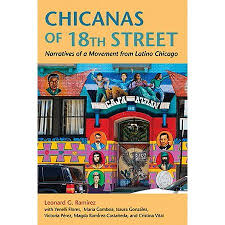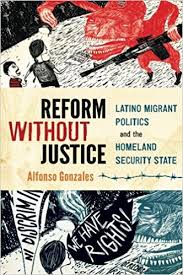Chicana Activists

A vitally important book in understanding Latinx Studies and history, Chicanas of 18th Street: Narratives of a Movement from Latino Chicago, looks at the Chicana/o movement of the 1960s and 1970s through the first-person perspectives of six activists from the Pilsen neighborhood of Chicago. Written by Leonard G. Ramirez and the six women activists, the book is a interesting mixture of big-picture policy and theory with “on-the-ground” accounts of what it was like for the participants.
The voices and histories of the women are compelling. They did not push for change because of theory. Instead, they were motivated by direct issues of injustice, opportunity, and the possibility of seeing improvements in their lives and the lives of their family and community. There is an immediacy to their account that compresses conceptions of history, giving the reader a sense of how they – and others – might be swept along. It also was not all that long ago that the very idea of civil rights for all was considered by some to be “radical.” Racism, sexism, and a host of other forces pushed these women and their communities down. They fought back.
Chicanas of 18th Street would be an outstanding book to teach. It makes clear that heroism is not just for the battlefield or distant history. These women were courageous, brave, and heroic – and they did it while juggling day to day challenges and more than their fair share of problems. It shows how change can happen and does happen, a powerful message for students.
David Potash
